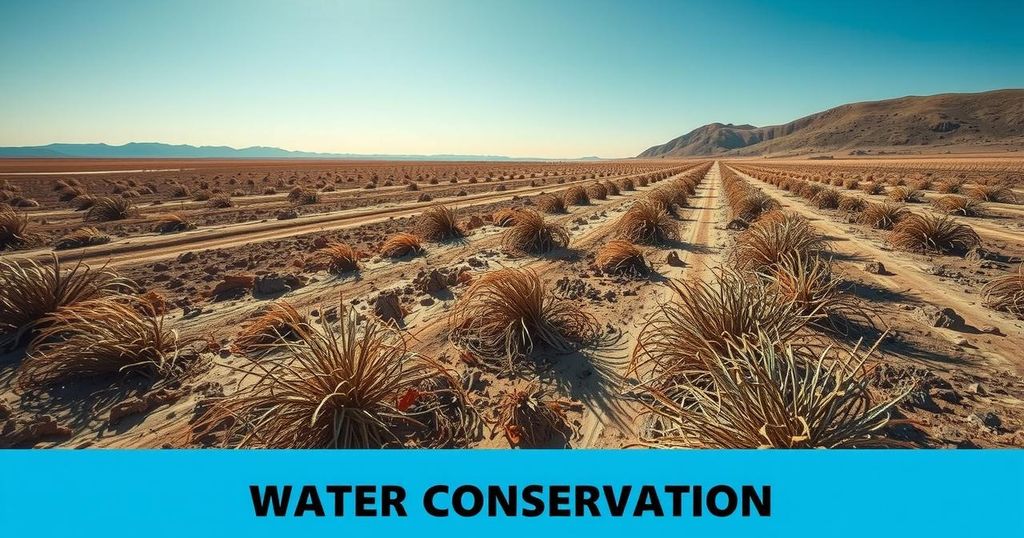Tanzania’s Deputy Prime Minister Urges Action on Financial Losses and Water Supply

Tanzania’s Deputy Prime Minister, Dr. Doto Biteko, has called on water authorities to tackle alarming water loss rates of 36.8%, leading to significant financial losses exceeding Sh114 billion. He emphasized the need for collaboration, increased investment in infrastructure, and adjustments to tariffs while addressing the importance of sanitation alongside water supply. Improved strategies are essential to meet growing demand and enhance efficiency in the sector.
Tanzania’s Deputy Prime Minister, Dr. Doto Biteko, has urged national water authorities to implement effective strategies to address alarming water loss levels and associated financial losses. This call to action occurred during the launch of the 16th Performance Report of Water Supply and Sanitation Authorities for the 2023/24 financial year, where it was reported that water loss has reached 36.8 percent, resulting in a financial impact of Sh114.12 billion, exceeding the government’s acceptable limit of 20 percent.
Although water loss slightly decreased from 37.2 percent in the previous year, Dr. Biteko emphasized the seriousness of the current situation, indicating that the revenue lost could fund significant water projects. He highlighted that water theft and infrastructural issues are primary contributors to these losses and noted the stark differences in performance among various regions, where some authorities are losing up to 79 percent of their water but others report losses between 4 and 13 percent.
Dr. Biteko pointed out the dire effects of high water loss rates, stating that excessive losses leave communities with inadequate access to water. He pointed out that if 70 percent of produced water is lost, revenue will not sustain operational costs, leading to complaints from water authorities. He called for collaborative efforts from both government and private stakeholders, highlighting the need for investment in water production and infrastructure to bridge the gap between supply and demand.
Despite a rise in water production to 685 million liters for the 2023/24 financial year, the output remains insufficient to meet the increasing demand, with the production-to-demand ratio declining from previous years. Moreover, the operational capacity of existing infrastructure is underutilized, dropping to 53 percent. Dr. Biteko also stressed the crucial link between sanitation and water supply, noting that only 11 authorities possess adequate wastewater treatment networks.
The Director General of Ewura, Dr. James Mwainyekule, acknowledged improvements in efficiency among some water authorities but pointed out ongoing challenges, including a strong reliance on governmental financial support. To this end, Ewura is collaborating with the ministry to provide training aimed at exploring alternative funding methods such as municipal bonds. Additionally, some water authorities are urged to request tariff adjustments to better align with service provision costs.
Old infrastructure is a persistent issue contributing to water loss, prompting Ewura to adopt better maintenance strategies. Prof. Mark Mwandosya, Chairman of the Ewura Board, underscored the vital role of water services in public health, suggesting that an improved water supply can reduce waterborne diseases and enhance educational outcomes, with over 70 percent of educational institutions now having water access, according to the National Bureau of Statistics report.
Tanzania now faces the urgent challenge of enhancing water supply services while simultaneously addressing inefficiencies to ensure a more sustainable water future for its citizens.
In conclusion, the urgent actions proposed by Deputy Prime Minister Dr. Doto Biteko to tackle water losses and enhance financial efficiency in Tanzania’s water sector highlight the importance of strategic collaboration between government and private stakeholders. Addressing issues of infrastructure and water theft, improving operational capacity, and increasing sanitation facilities are paramount. As Tanzania continues to face rising water demand, implementing proposed solutions will be critical in achieving a sustainable approach to water supply and sanitation.
Original Source: www.thecitizen.co.tz






